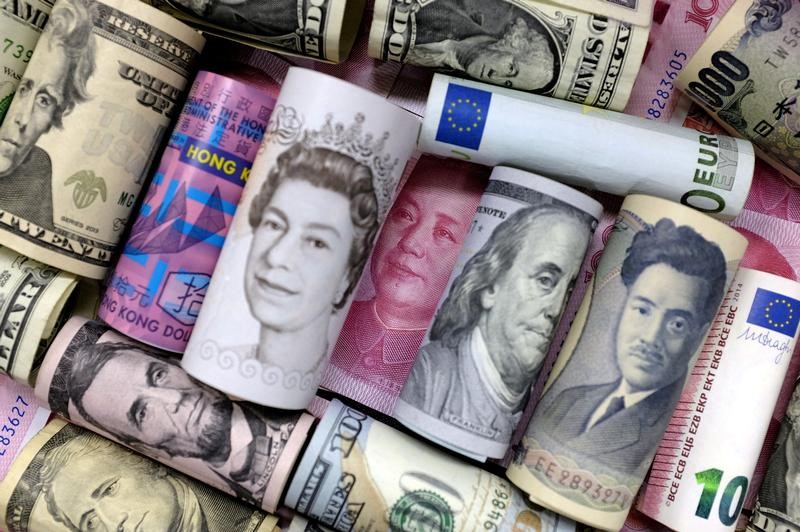By Vatsal Srivastava
SINGAPORE (Reuters) - The euro hovered near a one-week low against the dollar on Friday as the European Commission's criticism of Italy's populist budget sparked fresh concerns about political tensions in the common currency zone.
The dollar index (DXY), a gauge of its value against major peers, was 0.05 percent higher at 95.96 on Friday, having closed on Thursday at its highest level since Aug. 21. That rise was driven by a steep fall in the euro on Thursday, which constitutes around 57 percent of the index.
The euro (EUR=) was relatively flat at $1.1454 on Friday, steadying slightly after losing 0.4 percent overnight. The single currency hit its lowest intra-day level of 1.1447 since Oct. 9 on Thursday after the European Commission said Italy's 2019 budget draft is in serious breach of European Union budget rules.
The Commission said in a letter to Italian Economy Minister Giovanni Tria, that planned government spending was too high, the structural deficit - excluding one-offs and business cycle effects - would rise instead, not fall, and that Italian public debt would not come down in line with EU rules.
This has sparked investor concerns about more political tensions in the EU between Brussels and member states, which has hurt the euro.
The gap between Italian and German 10-year bond yield spreads hit its widest level in 5-1/2 years after news of the Commission letter broke.
Italy's prime minister defended the nation's free spending budget, though markets were not impressed.
"The euro decline reflects the build up of political tension in the eurozone," said Sim Moh Siong, currency strategist at Bank of Singapore.
"The next support for the euro is at 1.1430, a break of which can take us down to 1.13."
The British pound
Traders placed bearish bets on the sterling as a EU-UK summit failed to yield a decision on Britain's exit from the euro zone.
British Prime Minister Theresa May, on Thursday said that the European Union's proposal on the Irish border was unacceptable.
"Unless we get positive noises from Brussels, the impasse on Brexit and softer economic data suggests that the pound could underperform," said Boris Schlossberg, managing director of currency strategy in a note.
The Japanese yen
The greenback lost 0.4 percent of its value to the yen on Thursday, reflecting the global risk-off mood due to rising geopolitical tensions between the U.S. and Saudi Arabia, Italy's budget woes and U.S-Sino trade war tensions.
Wall street benchmark equity indices also tumbled more than 1.2 percent each, with technology stocks leading the pack.
China's economic growth in the third quarter slowed to 6.5 percent, its weakest pace since 2009 and below expectations, as a campaign to tackle debt risks and the trade war with the United States weighed on the economy.
The yuan
"Expectations have increased for the Chinese yuan to depreciate towards its psychological 7 level against the USD," said Eugene Leow, rates strategist at DBS in a note.

Gold